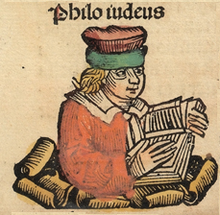Leibniz’ Creation Perspective
Gottfried Wilhelm Von Leibniz was a noteworthy German mathematician. His contributions to the development of psychological thought largely reflect a Creation perspective. Leibniz explored the possibilities of the unknown/unseen world that exists outside of and within the mind. He did not distinguish between living and non-living, but declared everything in the world to be living. He supports this declaration with his concept of monadology, or the separate live atoms that make up matter. Leibniz presented the idea that all monads were active and capable of thought.
Similar to Aristotle’s proposition, Leibniz believed there to be a hierarchy of the clarity of thought. God had the highest clarity and plants had the lowest. Man was second to God in clarity of thought. Monads had a goal of increasing their clarity of thought because this manner of thinking was thought to be pleasurable. One way that monadology represents Creation is that monads had this ability to advance in the hierarchy and become actualized. Therefore monads had the ability to fulfill a purpose. Since man was made of these monads, they shared this purpose as well. So, following the question of where does man come from, Leibniz’ answer is monads and their purpose is to increase their intelligence to the point were they become actualized. Realizing one’s full potential is still a prominent concept in modern societies and is often expressed in US culture by athletes, academics, and those are mastering an art or a craft.
Leibniz also presents a Creation perspective in his understanding of the mind-body relationship in human beings. His proposition that God created a preestablished harmony explores the question of what is the universe in which we live. He also stated that the very agreement of the mind and body was designed by the nature of monads and this idea of preestablished harmony.



